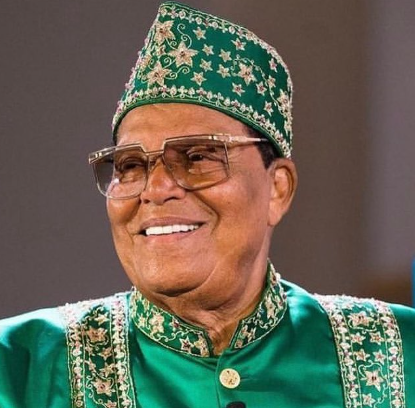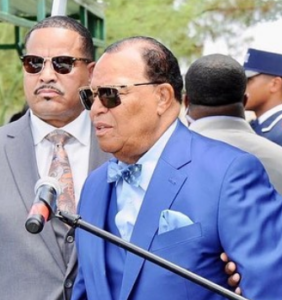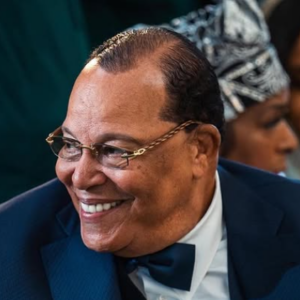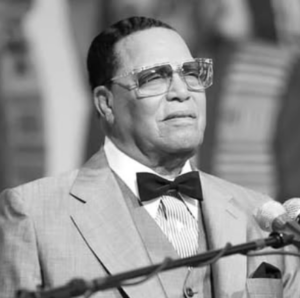Louis Farrakhan’s life and leadership are a study in contrasts. His commitment to uplifting Black communities is undeniable, yet his controversial rhetoric has overshadowed much of his work.
Farrakhan’s alliances with controversial figures have often sparked debate. While some view these relationships as strategic moves to advance his agenda, others see them as evidence of his willingness to associate with authoritarian regimes.
These alliances reflect the complexities of his approach to leadership and activism. The organization’s ability to adapt to modern challenges will determine its longevity.
Farrakhan’s legacy will undoubtedly shape its direction, influencing how it addresses issues of race, religion, and social justice.
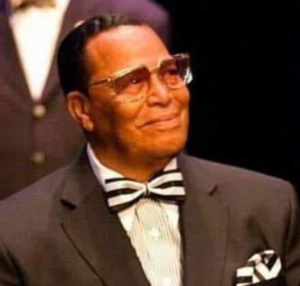
Also Read: Andrés Iniesta: Retirement News from Barcelona, Lionel Messi’s Emotional Reaction and More
Also Read: Chauncy Glover (Emmy-Winning News Anchor): Passes at 39, Tributes, Legacy and More
Louis Farrakhan: Who Is He?
Early Life and Introduction to the Nation of Islam
Louis Farrakhan, born Louis Eugene Walcott on May 11, 1933, in The Bronx, New York, grew up in Roxbury, Boston.
Initially pursuing a career in music, Farrakhan was a talented violinist and calypso singer known by the stage name “The Charmer.”
However, his life took a dramatic turn when he encountered the teachings of the Nation of Islam (NOI). In 1955, after being introduced to NOI leader Elijah Muhammad’s ideology, he officially joined the movement, marking the start of a transformative journey.
Farrakhan’s eloquence and charisma soon made him one of the Nation’s most prominent figures. In 1964, he was appointed minister of the influential Harlem Temple No. 7, succeeding Malcolm X after the latter’s break from NOI.
Farrakhan’s fiery speeches and ability to connect with urban audiences helped the organization maintain its influence in Harlem, one of the epicenters of Black activism during the Civil Rights Movement.
Ideological Conflicts and the Formation of a New NOI
The death of Elijah Muhammad in 1975 marked a pivotal moment for the Nation of Islam.
Elijah’s son, Wallace Muhammad, assumed leadership and shifted the organization’s focus toward mainstream Islamic practices, distancing from the original teachings that emphasized Black separatism.
Uncomfortable with these changes, Farrakhan broke away in 1978 to reestablish the NOI in Chicago, maintaining Elijah Muhammad’s original ideologies.
Under Farrakhan’s leadership, the restructured Nation of Islam expanded its influence far beyond the United States. The movement established a presence in the Caribbean, Ghana, London, and Paris, among other places. This international outreach was marked by efforts to unify the African diaspora and advocate for self-reliance within Black communities worldwide.
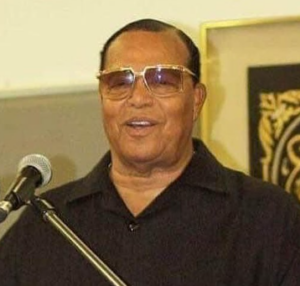
Louis Farrakhan: Black Nationalism
Farrakhan’s tenure has been marked by deeply polarizing rhetoric. He has consistently promoted Black nationalist ideologies, calling for economic independence and cultural pride among African Americans.
However, his speeches have often been criticized for their anti-Semitic, anti-LGBTQ, and inflammatory content.
Perhaps most infamous was his remark in the 1980s, describing Adolf Hitler as “a very great man,” a statement that attracted widespread condemnation.
In 1995, Farrakhan spearheaded the Million Man March in Washington, D.C., an event aimed at promoting unity, atonement, and self-responsibility among Black men.
The march drew hundreds of thousands of participants, showcasing Farrakhan’s ability to mobilize people despite his controversial reputation.
The event remains one of his most significant achievements, symbolizing a moment of solidarity for African Americans.
Louis Farrakhan: Books
Louis Farrakhan released his Books The Technics 2.o’s Volume 3A & B, where he wrote all the answers of the faq’s of his beloved fans.
View this post on Instagram
Health Struggles: Battling Prostate Cancer
In 1991, Farrakhan was diagnosed with prostate cancer, a health challenge that threatened his leadership. Despite the diagnosis, he continued to lead the Nation of Islam, balancing treatment with his responsibilities.
In 2000, he faced a near-fatal health complication, further testing his resilience. Farrakhan’s survival was seen by his followers as a testament to his strength and determination.
Throughout his career, Farrakhan has sought alliances with controversial global leaders. He has met with figures such as Libya’s Muammar Gaddafi, who provided financial support to the Nation of Islam, and Cuba’s Fidel Castro.
These relationships underscored his efforts to position himself and the NOI within a broader anti-imperialist and Pan-African framework.
Farrakhan’s leadership has been both celebrated and criticized. While his followers praise him for championing Black empowerment and economic self-sufficiency, his detractors accuse him of spreading hate speech.
The Southern Poverty Law Center and the Anti-Defamation League have labeled the Nation of Islam a hate group, citing Farrakhan’s history of inflammatory statements.
Also Read: Jonathan David Transfer News: Edges Closer to Barcelona Move and More
